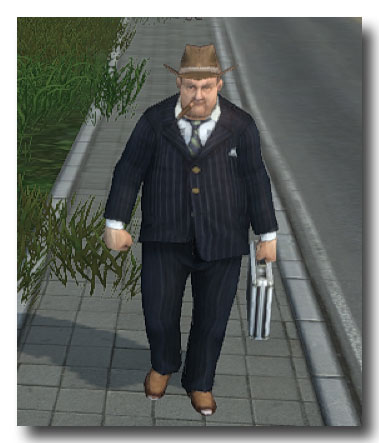
Haemimont Games’ 2009 city-state builder, Tropico 3, is nowhere near as deep as it initially appears to be. It certainly seems overwhelming in the beginning.
You play El Presidente, the ruler of Tropico, a tiny island nation in the Caribbean, trying to cling to power as citizens get restless and the superpowers circle around predatorily. There are 7 crops that can be grown, 6 exploitable natural resources, 71 types of buildings to construct (some with multiple options), 7 political factions to appease as well as 40 edicts which determine social, economic, domestic and foreign policies.

On top of that, each individual Tropican’s happiness is determined based on how he or she feels about 10 different aspects of island life. Unhappy Tropicans are quick to let you know how they feel and may eventually join a rebellion seeking to overthrow El Presidente.
It all seems intimidatingly complex.
It’s not.
Tropico 3’s political game, for instance, can boiled down to one James Carville-approved message: la economía, estúpida. With money in the treasury, it’s easy to deal with the island’s various factions. The religious fanatics getting antsy? Build a cathedral and hire a foreign bishop. The military agitating for better living conditions? Give the soldiers a raise and build an army base.
Once the economy is mastered — strategy gamers should be able to formulate a winning build order 5 scenarios into the 15-scenario campaign — Tropico 3 offers little challenge even with severe handicaps and random events thrown into the mix. Elections are easily won, political demands easily met and the superpowers easily placated as long as money flows into the coffers. The right words during election speeches, the right edicts and the right investments will see the player through all 15 campaign scenarios. As a game, Tropico 3 is a little disappointing.
The player who gets the most out of Tropico 3 is the one who delights in Tropico 3 as a simulation rather than as a game. Specifically, it’s made for the player who delights in making simulated life hell for those under his rule.

This is Aleksei Demidov, a 35-year-old immigrant from the Soviet Union. He came all the way to Tropico looking for a better life and he seems to be doing all right for himself. He’s a banker, earning a good wage and living in a decent apartment. Let’s fire him. No more speculating on derivatives for you, son. Oh look, he’s now a teamster, lugging goods across the island. That’s quite a dramatic change in lifestyle. Why, he must be really ticked off. Let’s offer him a bribe to make him look favourably upon El Presidente. There you go, Aleks. One thousand reasons to put a smile on your face. Tsk tsk, he’s so corruptible. Let’s arrest him for accepting a bribe. That’s five years in the big house for you, Mr Demidov. Enjoy your stay because, when you get out, a member of the Tropican military is going have a tragic weapons malfunction in your general area. Should have gone to Sim City instead.
It must be stressed there is no overwhelming need to resort to bribery, political repression and assassination to stay in power. Playing a benevolent, democratically elected leader who cares deeply about his constituents is entirely feasible and taking this path doesn’t even make the game harder.
However, this would be missing Tropico 3’s raison d’etre. The game doesn’t reward you for being a nice guy. On the contrary, every scenario awards bonus points for corruption (with two scenarios requiring the player to fatten up a Swiss bank account) and the achievements in the game encourage committing various human rights abuses. In short, Tropico 3 really wants you to put the dick in dictator.

How much enjoyment you derive from Tropico 3 depends heavily on your predilection for malfeasance and malevolence. The player accustomed to righting wrongs and doing good as a virtuous avatar may find life as El Presidente discomfitting; the player knowing the horrific real world inspirations for Tropico 3’s bag of dirty tricks may find the game downright disturbing. This is corruption, persecution and oppression set to a breezy Latin soundtrack.
